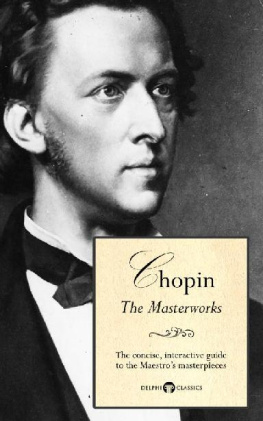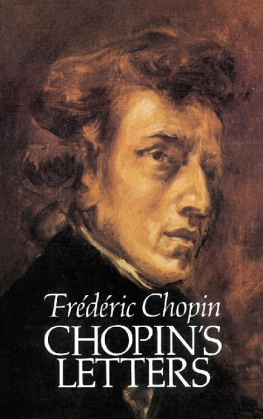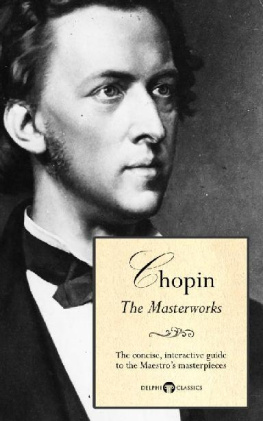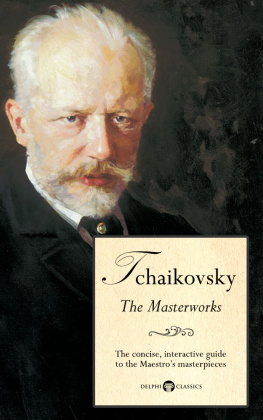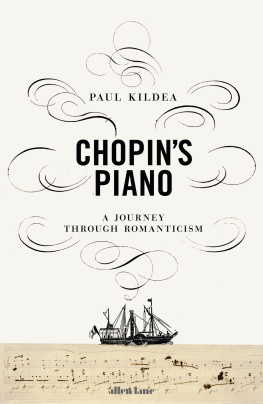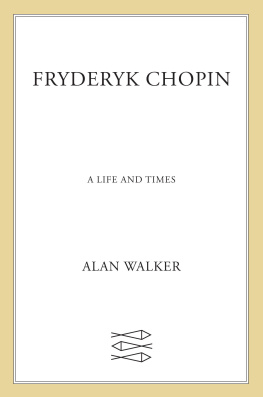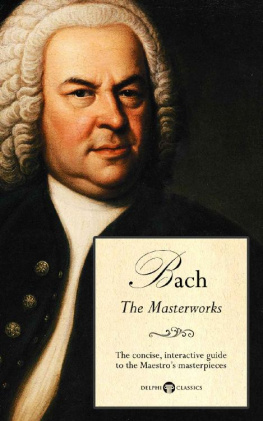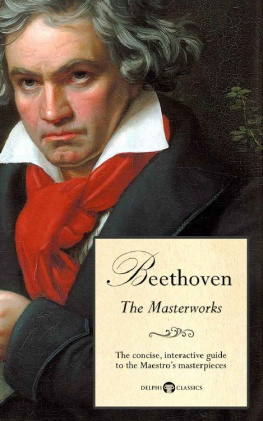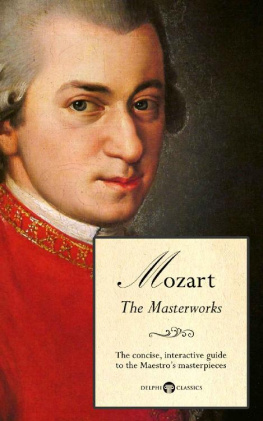
Frdric Chopin
(1810-1849)

Contents

Delphi Classics 2018
Version 1

Delphi Great Composers
Frdric Chopin

By Delphi Classics, 2018
COPYRIGHT
Delphi Great Composers - Frdric Chopin
First published in the United Kingdom in 2018 by Delphi Classics.
Delphi Classics, 2018.
All rights reserved. No part of this publication may be reproduced, stored in a retrieval system, or transmitted, in any form or by any means, without the prior permission in writing of the publisher, nor be otherwise circulated in any form other than that in which it is published.
ISBN: 978 1 78656 124 4
Delphi Classics
is an imprint of
Delphi Publishing Ltd
Hastings, East Sussex
United Kingdom
Contact: sales@delphiclassics.com

www.delphiclassics.com
The Masterworks

Frdric Chopin was born in elazowa Wola, 30 miles west of Warsaw, in what was then the Duchy of Warsaw, a Polish state established by Napoleon.

Chopins birthplace in elazowa Wola

The Chopin monument in elazowa Wola by Jzef Gosawski
The Masterworks: A Short Guide

In this section of the eBook there are concise introductions for Frdric Chopins most celebrated works. Interactive links to popular streaming services are provided at the beginning and end of each introduction, allowing you to listen to the music you are reading about. The text is also accompanied with contextual images to supplement your reading and listening.
There are various options for streaming music, with most paid services charged competitively at the same rate and usually offering a similar range of albums. Various streaming services offer a free trial ( Google Play Music , Amazon Music Unlimited and Apple Music ) and Spotify offers a free service after you watch a short advertisement. Amazon Prime members can also enjoy a wide range of free content from Amazon Prime Music . If you do not wish to subscribe to a streaming service, we have included YouTube links for free videos of the classical pieces. Another free option is MUSOPEN , a non-profit organisation that provides recordings, sheet music and textbooks to the public for free, without copyright restrictions.
Please note: different eReading devices serve hyperlinks in different ways, which means we cannot always link you directly to your chosen service. However, the links are intended to take you to the best option available for the piece of music you are reading about.
High-resolution scores for the music would be too large in size to include in an eBook; however, we have provided links to free scores available at IMSLP , the International Music Score Library Project, which can be accessed from the SCORES links in each chapter.
Now, settle back and relax as you immerse yourself in the music and life of Chopin...
Introduction and Polonaise brillante in C major, Op.3

AMAZON APPLE GOOGLE MUSOPEN SPOTIFY YOUTUBE SCORES

One of the most celebrated composers of the Romantic period, Fryderyk Chopin was born in elazowa Wola, a village in modern-day Poland. A tutor for children of the Polish aristocracy, his father, Nicolas Chopin, was a Frenchman from Lorraine, who had immigrated to Poland in 1787 at the age of sixteen. In 1806 he had married Justyna Krzyanowska, a poor relative of the Skarbeks, one of the families for whom he worked as a tutor. Fryderyk was the second of four children, including an elder sister, Ludwika and two younger sisters, Izabela and Emilia.
Chopins father was devoted to his adopted homeland and insisted on the use of the Polish language in the household. All the family were interested in artistic pursuits. The father played the flute and violin; the mother played the piano and gave lessons to boys in the boarding house that the Chopins kept. From his infancy, Chopin was reported to have been peculiarly moved when listening to his mother or sister playing the piano. By the age of six he was already trying to reproduce what he heard or to create new tunes. The following year he started piano lessons with Wojciech Zywny, a 61-year-old all-around musician with an astute sense of values. In short time Zywnys simple instruction in piano playing was lacking in challenge, as Chopin developed for himself an original approach to the piano, unhindered by academic rules and formal discipline. He was soon regarded as a child prodigy.
By the age of seven Fryderyk was giving public concerts and in 1817 he composed two polonaises in G minor and B-flat major. His next work, a Polonaise in A-flat major composed in 1821 and dedicated to Zywny, is now held as his earliest surviving manuscript. During this period, Fryderyk was occasionally invited to the Belweder Palace as a playmate to the son of the ruler of Russian Poland, Grand Duke Constantine. There he played the piano and even composed a march for the Duke.
When he was sixteen, Fryderyks family enrolled him at the newly formed Warsaw Conservatory of Music, directed by the Polish composer Joseph Elsner, with whom he had recently studied musical theory. Insisting on a traditional training, Elsner was also a romantically inclined composer, who allowed Chopins individual imagination to flourish and not be checked by academic demands. At the Warsaw Conservatory, he was put through a solid course of instruction in harmony and composition, while in piano playing he was allowed to develop a high degree of individuality. Throughout this formative period, he continued to compose and to give recitals in concerts and salons in Warsaw.
Chopin spent his holidays away from the city, particularly favouring Szafarnia, a village in north-central Poland, where he was a guest of Dominik Dziewanowski, the father of a schoolmate. It was here for the first time that he encountered Polish rural folk music, storing impressions that would later give an unmistakable national colouring to his work. His literary merits were demonstrated by his letters home, to which he gave the title The Szafarnia Courier; they were written in a witty and lively Polish, parodying local newspapers and providing much amusement for his family.
Next page
